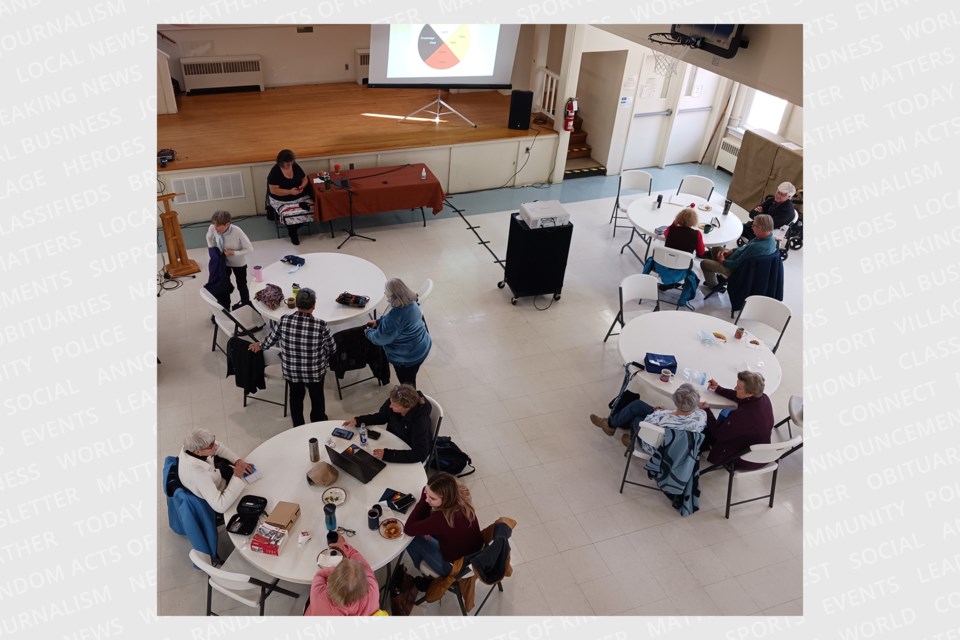NEWS RELEASE
ST. JAMES' RECONCILIATION CIRCLE
***************************
“The past is not our fault. We can’t be responsible for what has happened,” Kelly Brownbill told a well-attended Indigenous Cultural Awareness workshop at St. James' Church on Saturday, Oct. 15.
“But we can be responsible for what we do now,” she added.
Brownbill, a Mi’kmaq teacher and educator who has worked in this area for 25 years, led 36 people from different parts of the Orillia community through a consideration of Canadian history from an Indigenous perspective.
Along the way, she noted that there was initially cooperation between Indigenous people and Europeans, that turned to efforts by settlers to control and reduce Indigenous nations as the settler population rose dramatically from the 1820s to 1850, and the Indigenous population declined by 50 to 75 per cent of what it had been before European contact.
“There was a huge gap between the points of view of these people,” Brownbill said, giving information about Indigenous approaches to land management, governance, family structures and spirituality that European newcomers did not understand and so did not value.
Listening to Brownbill speak about policies that have injured Indigenous people over hundreds of years, including residential school abuses, and which continue today under the Indian Act, was a difficult part of the day.
But Brownbill never forgot to stress that the past is past; what is important is that we be present and seek equitable, safe cultural relations now and in the future.
To learn to be present and aware is a responsibility, she said, and she always equated responsibilities and gifts. She offered some resources as a way to further our education about our shared history.
Read the Truth and Reconciliation report, or the summary, or the 94 Calls to Action, she said. Read 21 Things You May Not Know About the Indian Act, by Bob Joseph (in the church library).
Watch the film We Were Children, available on CBC Gem. Or pick up Out of the Depths by Edgar Harrell or Up Ghost River: A Chief’s Journey Through the Turbulent Waters of Native History by Edmund Metatawabin.
And always, Brownbill said, when you try to develop a relationship with someone from another culture and inevitably get it wrong, don’t say, “I’m sorry.” Say instead, “Thank you so much for teaching me that.”
It was a day that spoke to equity in the Orillia community in many ways, and Brownbill gained the appreciation of participants through the quality, warmth, humour and wisdom of her presentation.
The workshop was organized by the St. James’ Reconciliation Circle, with financial support from the St. James’ Centre for Spirituality and welcome donations by participants.
***************************
